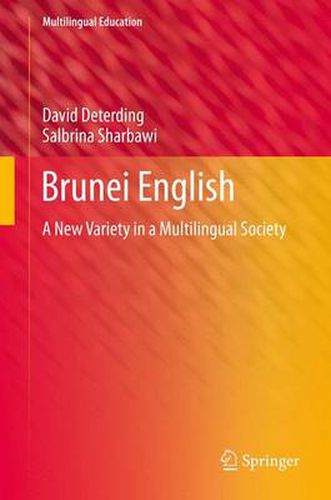Readings Newsletter
Become a Readings Member to make your shopping experience even easier.
Sign in or sign up for free!
You’re not far away from qualifying for FREE standard shipping within Australia
You’ve qualified for FREE standard shipping within Australia
The cart is loading…






This title is printed to order. This book may have been self-published. If so, we cannot guarantee the quality of the content. In the main most books will have gone through the editing process however some may not. We therefore suggest that you be aware of this before ordering this book. If in doubt check either the author or publisher’s details as we are unable to accept any returns unless they are faulty. Please contact us if you have any questions.
This detailed survey of Brunei English reflects the burgeoning academic interest in the many new varieties of English which are fast evolving around the world. Wholly up to date, the study is based on careful analysis of a substantial dataset that provides real-life examples of usage to illustrate the narrative throughout.
As well as a thorough account of the pronunciation, grammar, vocabulary usage, and discourse patterns of Brunei English, the volume explores its historical and educational background and current developmental trends, providing an in-depth review of the patterns of English usage within this multilingual, oil-rich society on the north-western coast of Borneo. Written in a non-technical style throughout that will assist non-specialists wishing to grasp the fundamentals of this unique brand of the English language, the work is a worthy addition to Springer’s series on multilingual education that plugs a gap in the coverage of the numerous varieties of English being used across South East Asia.
The authors bring renewed and badly needed attention to the long-overlooked development of Brunei English. Their examination of the variety not only documents the features and functions of English within Brunei society, it also suggests the development of regional or global varieties of English that extend beyond Brunei, and even beyond South East Asia.
Andrew Moody, University of Macau
$9.00 standard shipping within Australia
FREE standard shipping within Australia for orders over $100.00
Express & International shipping calculated at checkout
This title is printed to order. This book may have been self-published. If so, we cannot guarantee the quality of the content. In the main most books will have gone through the editing process however some may not. We therefore suggest that you be aware of this before ordering this book. If in doubt check either the author or publisher’s details as we are unable to accept any returns unless they are faulty. Please contact us if you have any questions.
This detailed survey of Brunei English reflects the burgeoning academic interest in the many new varieties of English which are fast evolving around the world. Wholly up to date, the study is based on careful analysis of a substantial dataset that provides real-life examples of usage to illustrate the narrative throughout.
As well as a thorough account of the pronunciation, grammar, vocabulary usage, and discourse patterns of Brunei English, the volume explores its historical and educational background and current developmental trends, providing an in-depth review of the patterns of English usage within this multilingual, oil-rich society on the north-western coast of Borneo. Written in a non-technical style throughout that will assist non-specialists wishing to grasp the fundamentals of this unique brand of the English language, the work is a worthy addition to Springer’s series on multilingual education that plugs a gap in the coverage of the numerous varieties of English being used across South East Asia.
The authors bring renewed and badly needed attention to the long-overlooked development of Brunei English. Their examination of the variety not only documents the features and functions of English within Brunei society, it also suggests the development of regional or global varieties of English that extend beyond Brunei, and even beyond South East Asia.
Andrew Moody, University of Macau